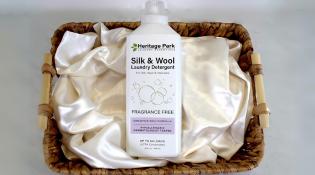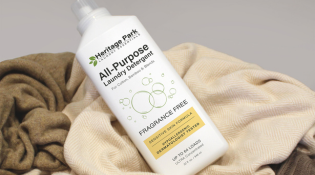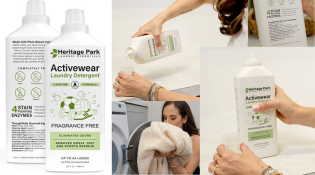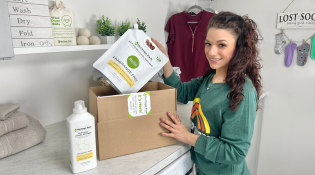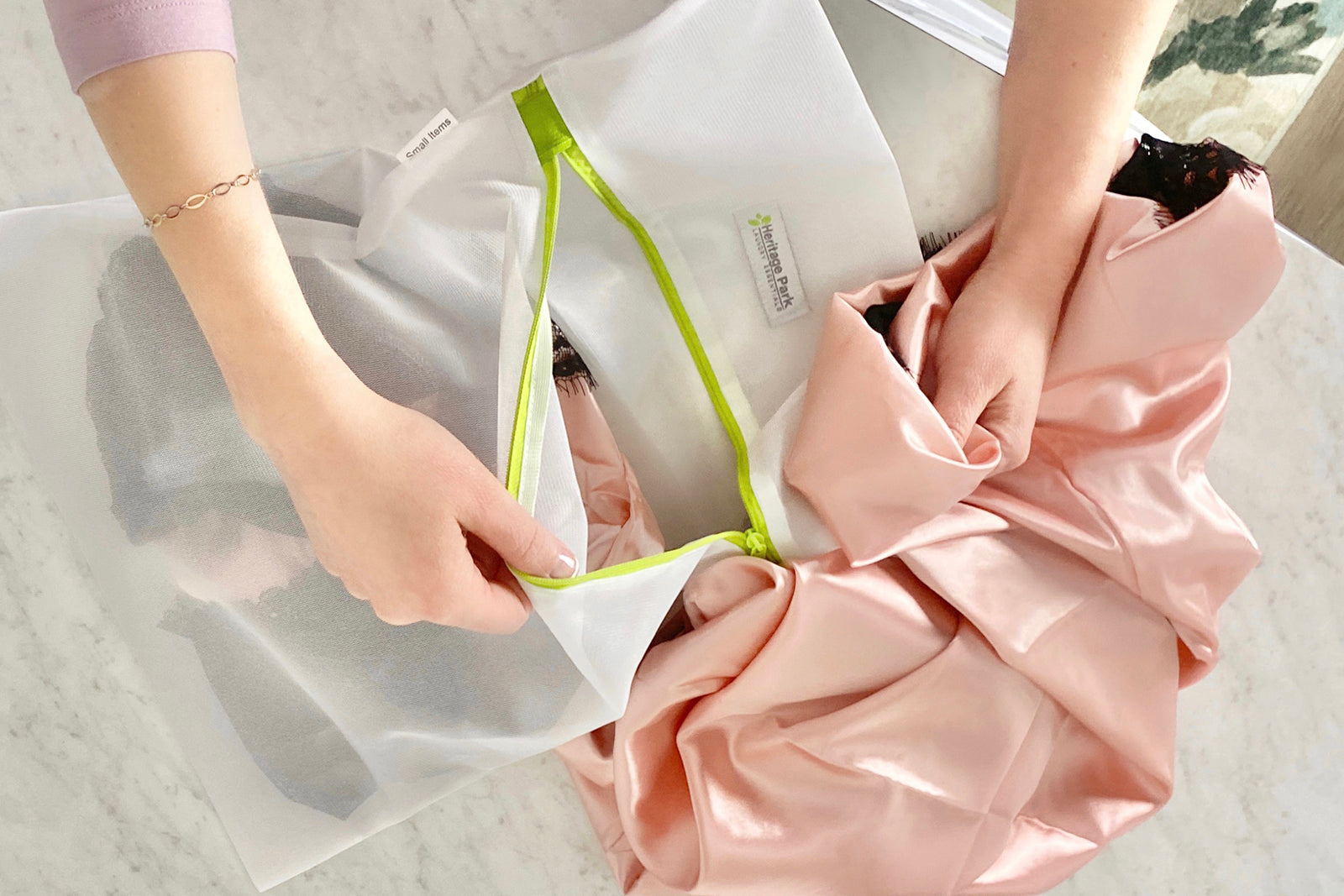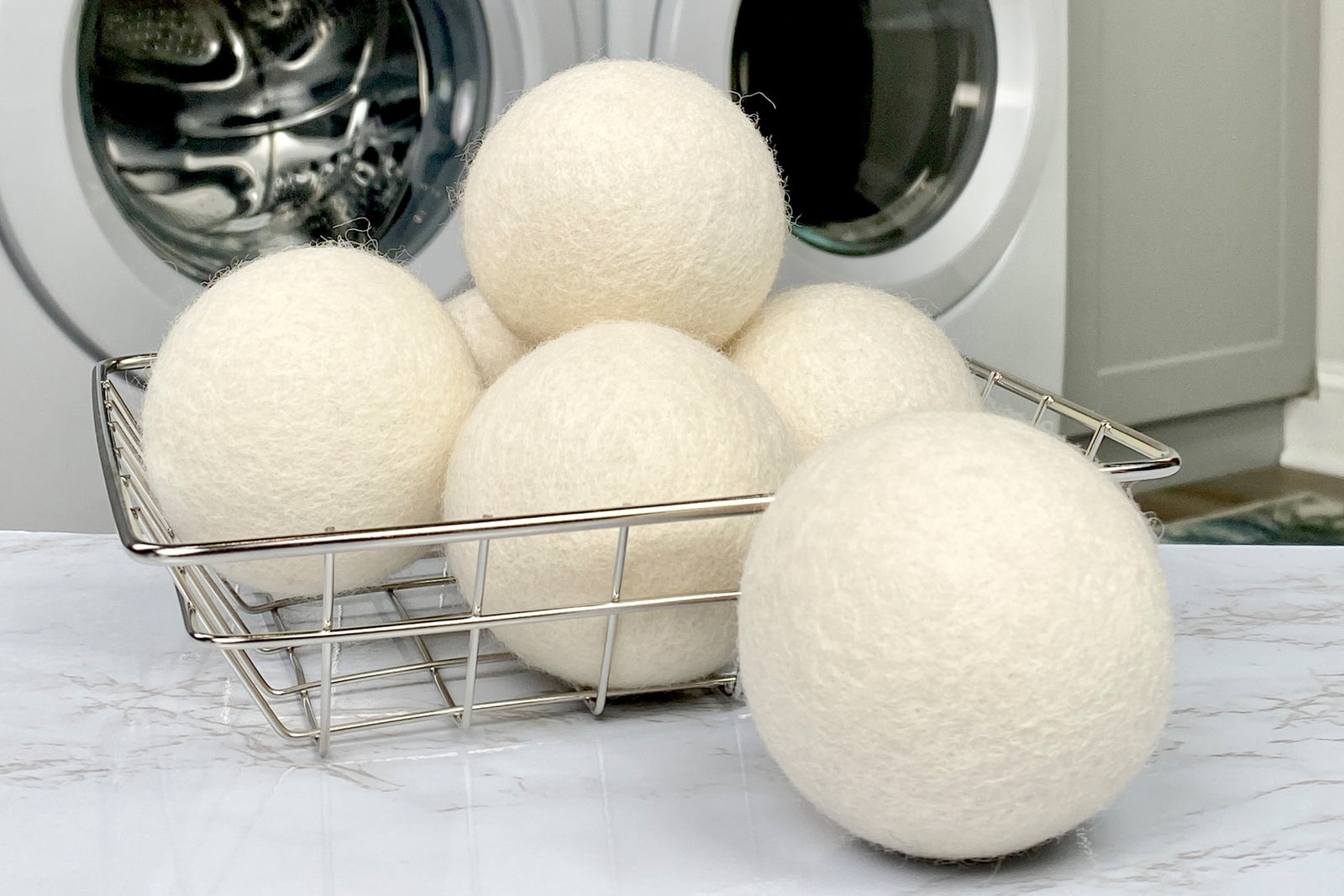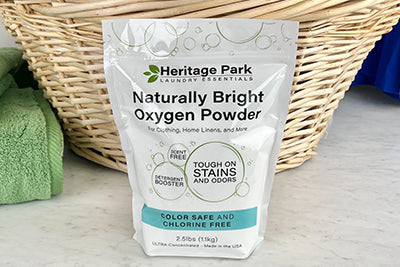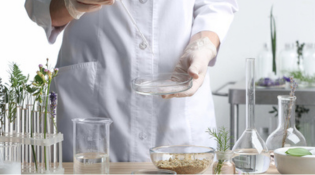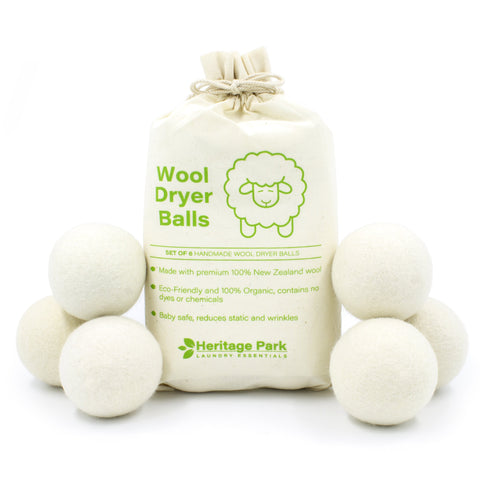This article explains greywater recycling and features a Q & A with Bacon Plumbing Heating Air Electric discussing laundry detergent and greywater safety.
Inside this Article:
- Laundry Detergent that is Safe for Greywater Recycling
- What is Greywater and How is it Used?
- The Pro Weigh in on Detergent for Greywater Systems
- Are there any specific ingredients to avoid in laundry detergents for a greywater system?
- Are biological detergents (those containing enzymes) safe for use with greywater? Are there specific enzymes to be avoided?
- More about Bacon Plumbing Heating Air Electric
- Heritage Park Laundry Essentials
Laundry Detergent that is Safe for Greywater Recycling
If you live in one of the increasing number of areas that are recycling greywater, congratulations for doing your part for the environment! A greywater system takes waste water from non-toilet plumbing including sinks, tubs/showers, dishwashers, and washing machines and recycles it to use for landscape and agricultural irrigation or even flushing toilets.
A recent article in The Washington Post noted that the average U.S. household uses 300 gallons of water a day and that greywater systems can cut overall usage by early 40 percent. That’s why greywater systems represent a very big step in the direction of sustainability. Greywater recycling is most common in arid regions such as Arizona, New Mexico, Texas and California, as well as Florida and other southern states.
Part of the recycling process for greywater is filtration. However, it is essential to use cleaning products -- including laundry detergent -- that are safe for these systems. At Heritage Park, Laundry Essentials, we are proud to say that our detergents are greywater safe. Read on to learn more about greywater and what the experts have to say about choosing a greywater-safe detergent for your laundry
What is Greywater and How is it Used?
Simply put, greywater refers to household wastewater generated from sources like showers, sinks, and washing machines. It is distinct from blackwater, which is wastewater that comes from toilets and so is contaminated with bacteria and fecal matter.
Because greywater typically contains a lower level of contaminants than blackwater, it is often reused for purposes such as landscape irrigation, flushing toilets, and other non-potable uses. The reuse of greywater is becoming increasingly popular as a way to conserve water resources and reduce the strain on municipal wastewater treatment systems. Many municipalities have stringent guidelines for collecting, purifying, and reusing greywater. In general, it’s a five-step process.
- Collection: Greywater is collected from sources like sinks, showers, and washing machines via a network of pipes and diverted to a holding tank or filtration system.
- Filtration: The greywater is then filtered to remove solid particles, hair, and other debris. Depending on the system, this could involve a series of filters or a single filter that removes all impurities.
- Treatment: Once the greywater is filtered, it undergoes a treatment process to remove any harmful bacteria or viruses. This can involve using chemicals or natural biological processes such as wetlands or plant-based filters.
- Storage: The treated greywater is then stored in a separate tank or reservoir for reuse.
- Distribution: Finally, the recycled greywater is distributed to where it's needed, either for irrigation or toilet flushing.
Greywater recycling systems can vary in complexity and scale. Some systems may only treat greywater for outdoor irrigation, while others may be designed to supply water for indoor plumbing systems. In all cases, if you are recycling greywater you should look to use personal care and cleaning products that are biodegradable and made with a minimum amount of natural ingredients, like those produced by Heritage Park Laundry Essentials.
The Pro Weigh in on Detergent for Greywater Systems
To shed some light on the subject of detergent safety for greywater, we asked the experts at Bacon Plumbing Heating Air Electric, a home services company in the Dallas-Ft Worth area, a couple of specific questions. Read on to learn what they had to say.
Are there any specific ingredients to avoid in laundry detergents for a greywater system?
Bacon Plumbing Heating Air Electric: Great question! When it comes to choosing a laundry detergent for a greywater system, it's important to be mindful of the ingredients you're using. Greywater is the wastewater that comes from your washing machine, sinks, and showers, and it can be reused for watering plants or flushing toilets. However, some ingredients commonly found in laundry detergents can be harmful to the environment and potentially toxic for plants and animals.
One ingredient to avoid in laundry detergents for a greywater system is phosphates. Phosphates are often added to laundry detergents as a water softener and to help remove stains. However, they can cause excessive algae growth in rivers and lakes when they enter the water system. This can lead to oxygen depletion and harm aquatic life.
Another ingredient to avoid is sodium lauryl sulfate (SLS). SLS is a surfactant commonly used in laundry detergents to create foam and remove dirt. However, it can be toxic to fish and other aquatic life when it enters the water system. Additionally, it can cause skin irritation in some people.
Fragrances and dyes are also worth avoiding in laundry detergents for a greywater system. These ingredients can be harmful to plants and animals and may even cause allergic reactions in some people. Look for fragrance-free and dye-free options instead.
Finally, it's important to choose a laundry detergent that is biodegradable. This means that the ingredients will break down naturally over time and won't harm the environment. Look for products with the "biodegradable" label or those that are certified by organizations such as the Environmental Protection Agency (EPA) or the Green Seal.
Here at Heritage Park Laundry Essentials , we place a premium on transparency. We also take great pride in the quality of our safe, natural ingredients and no toxic chemicals. Heritage Park Laundry Detergents are biodegradable and made without no dyes, sulfates, phosphates, chlorine, bleach, or brightener that are bad for greywater. Our unscented detergent is hypoallergenic and pediatrician- and dermatologist-tested. Our scented detergents are lightly fragranced with natural ingredients. (Check out our ingredients here -- it’s a short list!)
Are biological detergents (those containing enzymes) safe for use with greywater? Are there specific enzymes to be avoided?
Bacon Plumbing Heating Air Electric: As for greywater, which is wastewater from sinks, showers, and washing machines that can be reused for irrigation or flushing toilets, enzymatic detergents can actually be beneficial. Since greywater is typically low in nitrogen and phosphorus, which are essential nutrients for plants, enzymes can help break down organic matter in the water and make those nutrients more available for plants to use. This can help promote healthy plant growth and reduce the amount of greywater that needs to be disposed of.
In conclusion…with greywater, enzymatic detergents can actually be beneficial by helping to promote healthy plant growth. Just make sure to follow any guidelines or recommendations from your local government or sanitation department regarding greywater use.
Heritage Park All-Purpose Detergent is made with a proprietary blend of cleaning enzymes that naturally break down dirt and stains. Learn more about how enzymes work in our detergent here .
More about Bacon Plumbing Heating Air Electric
The team at Heritage Park Laundry Essentials extends our deepest thanks to Bacon Plumbing Heating Air Electric for their insight and expertise.
These answers to our questions were provided by the sewer/septic manager Brandon Hope, CEO Brad Bacon, and Director of Marketing Lidiya Shuppert from Bacon Plumbing Heating Air Electric. You can find the company online at everyonelovesbacon.com.
Heritage Park Laundry Essentials
At Heritage Park, caring for fine fabric is our passion. As lifelong collectors of luxury sheets, towels, and other textiles, we found many commercially available "gentle detergents" either damaged our delicate fabrics or didn't get the job done, leaving stubborn stains behind. At the same time, traditional laundry detergent was too harsh. We knew we could do better. So we developed a formula with the perfect balance of powerful -- yet safe -- ingredients designed to remove tough, set-in stains while remaining gentle on luxury linens. Please connect with us at (800) 977-1841 or visit our store with any product feedback or cleaning questions.


